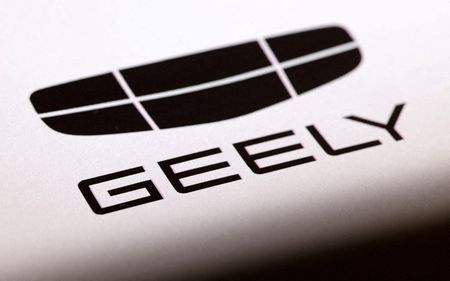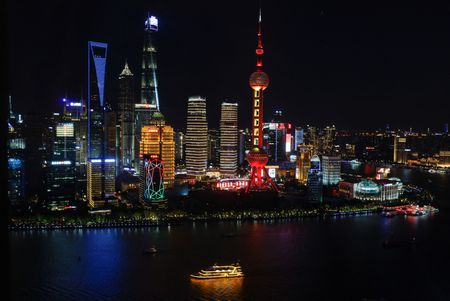HONG KONG (Reuters) -Shares of Chinese automaker Geely Automobile jumped nearly 7% on Thursday after it offered to pay $2.2 billion to privatise its unit Zeekr, just a year after it took the electric vehicle brand public in the United States.
Geely’s shares rose as much as 6.7% in early trade to HK$17.90 ($2.30).
Geely offered to pay $25.66 in case or 12.3 in newly issued shares per Zeekr’s American Depositary Share, a premium of 13.6% to the stock’s closing price on Tuesday.
“This appears an opportunistic proposal,” said David Blennerhassett, content strategist at financial services firm Ballingal Investment Advisors who publishes on SmartKarma, adding that Geely had almost sufficient votes to take Zeekr private given its 65.7% stake in the firm.
“Geely already controls and consolidates Zeekr, so the impact, if any, will come from the cost outlayed for shares not held – which could be largely mitigated under the scrip option.”
Geely said it wanted to consolidate its business to fend off fierce competition in China’s largest auto market. The company, which owns multiple brands including Volvo, has been pivoting away from its history of aggressive acquisitions to streamlining operations and cutting costs.
Zeekr, which was founded in 2021 as a premium electric vehicle brand of Geely, went public in the U.S. in May last year at a valuation of $6.8 billion, the first major listing by a Chinese company in the country since 2021.
But investor concerns over whether Chinese companies could be forced to delist U.S. exchanges have reemerged since the tit-for-tat trade war between the world’s two largest economies.
Zeekr was named in a letter by two Republican lawmakers to the U.S. Securities and Exchange Commission that called for 25 Chinese companies to be delisted from U.S. exchanges, saying they had military links that put U.S. national security at risk.
Zeekr did not respond to a request for comment on the letter.
Li Yanwei, analyst at the China Auto Dealers Association, said that privatising Zeekr was the best choice for both companies at the moment given multiple headwinds, such as slower than expected sales for Zeekr’s new products such as the 7X and US-China tensions.
The Trump administration has also imposed tariffs on imports of Chinese EVs, blocking in essence Zeekr from selling in the U.S.
“The capital market is less enthusiastic about Chinese new energy vehicle companies, and the possibility of refinancing in the U.S. capital market is much lower,” he said.
($1 = 7.7662 Hong Kong dollars)
(Reporting By Anne Marie Roantree and Kane Wu in Hong Kong; Zhang Yan in Shanghai; Editing by Christian Schmollinger and Michael Perry)










